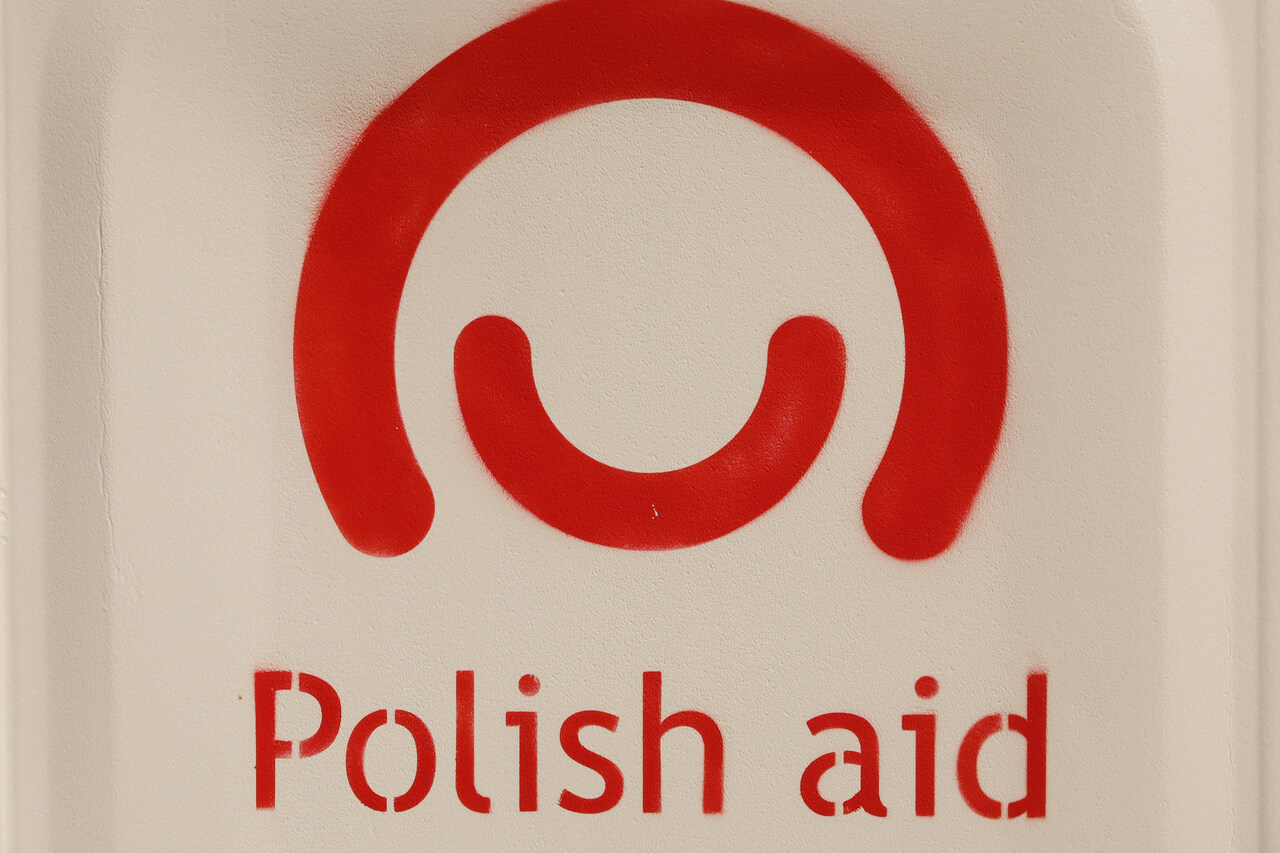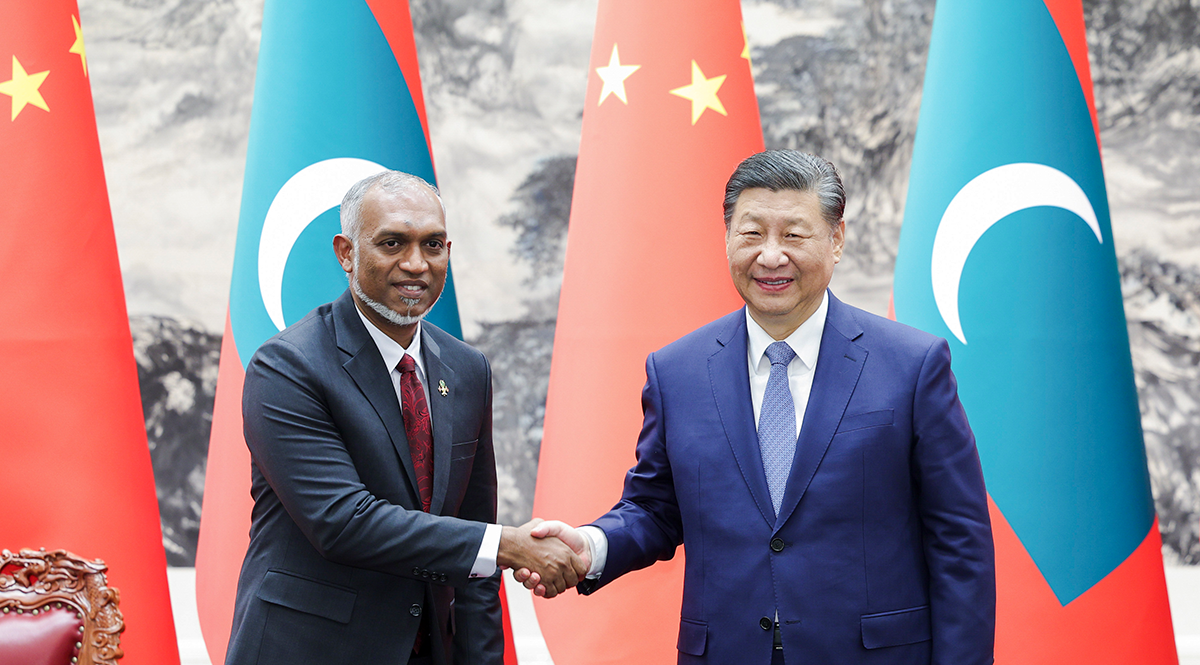GoAsia: Poland Can Seek Greater Cooperation with Asia-Pacific During Its EU Council Presidency
The potential of economic, political, and people-to-people cooperation between Poland and the countries of Asia-Pacific remains untapped. Its presidency of the EU Council in the first half of 2025 creates an opportunity for Poland to have greater influence on the Union’s Asian policy and the country’s own visibility in the region, along with strengthening multidimensional cooperation with partners in the region. For this purpose, it is worth including Asian issues among the presidency’s goals and organising several flagship EU initiatives on Asia and the Pacific in Poland. This may also be a good time to increase the Polish diplomatic presence in the region and strengthen its missions.
.jpg) CFOTO / ddp images / Forum
CFOTO / ddp images / Forum
Potential for Cooperation
Over the last three decades, the importance of Asia-Pacific countries in the global economy and politics has increased significantly. According to the IMF, the region’s share in world GDP based on purchasing power parity increased from 27.7% in 1990 to 46.05% in 2024. Its share of global exports of goods increased from 27.7% in 2003 to 35.1% in 2023, and in imports from 23.8% to 32.5%, according to UNCTAD. The position of Asian countries as destinations for foreign direct investment (FDI) also improved, with their global share rising from 17.4% in 2000 to 29.5% in 2022, and as sources of investment, from 13.3% to 29.7%. The presence in the region of the second-largest economy in the world—China—and the expected further rapid economic growth of countries like India or ASEAN members will further strengthen their global political role, making “the 21st century, the Asian century”.
Meanwhile, for Poland, despite the growing role of Asian countries in the global economy, their share in Polish trade in 2022 was modest and, according to the Central Statistical Office, amounted to 5.1% in exports and 29.2% in imports (China was the second-largest source of imports), resulting in a negative trade balance for Poland. According to the World Bank, in 2021, only 2.78% of Polish exports went to the countries of East Asia and the Pacific—for comparison, in the case of Sweden it was 9.2%, France, 11.75%, and Germany, 13.4%. According to National Bank of Poland data, in 2022, the value of investments from Asian countries in Poland amounted to $11.5 billion, or 4.2% of all FDI (the largest share was FDI from South Korea and Japan, totalling $6.9 billion and $1.7 billion, respectively). However, Polish FDI in Asia was only $1.5 billion, which is just 5.2% of the total. Cultural, scientific, and people-to-people contacts between Poland and countries in the region also have not kept pace with the intensification of relations between Asia-Pacific and Western European countries. The potential of research and development cooperation, visits of tourists, and employees is largely untapped.
Poland’s political dialogue with Asia-Pacific countries before 2020 was not very intense, and the outbreak of the pandemic caused a break in contacts. However, political cooperation is reviving. In total, in the period 2020-2023, there were four top-level visits to the countries of the region, including the Polish prime minister’s trip to Japan in 2020 and the president’s visits to Japan in 2021, China in 2022, and Mongolia in 2023. There were four visits of this rank to Poland—the Japanese prime minister twice in 2023, and the prime minister and the president of South Korea also that same year. Contacts at the level of foreign ministers were more frequent, with 14 visits both ways. The above activities were complemented by telephone conversations at various levels and meetings on the occasion of international events. Yet, no new strategic partnerships have been established in the last nine years, apart from the three existing agreements—with China in 2011, South Korea in 2013, and Japan in 2015. Poland has especially deepened relations with the latter two countries since 2022 due to their support for Ukraine and engagement with the U.S. and NATO.
The Role of the Council Presidency
The importance of the country holding the rotating presidency of the Council of the EU in conducting foreign policy was significantly reduced after the entry into force of the Lisbon Treaty in 2009. However, the presidency still participates in conducting EU external policy, on development, migration, international law, and others. This is performed, for instance, by leading the daily work of the Council (at the levels of permanent representatives, COREPER, and Working Groups), influencing the preparation of EU cooperation plans with third partners, coordinating the development of Member States’ positions, as well as promoting cooperation mechanisms and formats.
The EU presidency therefore has influence on the shaping of, in this case, Asia-Pacific policy for the entire Union. The EU policy towards this region has become more and more active and comprehensive in recent years, going beyond economic topics and covering, among others, security issues. In addition to regular dialogue at the ministerial level with a number of Asian countries, the EU holds annual summits with four strategic partners (China, Japan, South Korea, and India), and is to organise a summit with ASEAN every two years (the first one took place in December 2022). The EU and its members also meet with a large part of Asian countries in the framework of the Asia-Europe Dialogue (ASEM). Although summits in these formats are usually held on the EU side in Brussels (although there are exceptions, e.g., the EU-India summit in Porto in 2021), the country holding the presidency may use it to organise additional events, such as business summits, meetings of experts, and cultural events.
The Council chairmanship also provides the opportunity to propose new initiatives and meetings to strengthen EU-Asia cooperation. For example, France organised the EU Indo-Pacific Ministerial Forum during its presidency in 2021, continued by Sweden in 2022, and Belgium in 2023. The country holding the presidency can contribute more in the implementation of the 2018 Europe-Asia Connectivity Strategy and the Strategy of Cooperation in Indo-Pacific of 2021. It may also support increasing the EU’s presence in the security area, including through greater engagement in the ESIWA or CRIMARIO projects on maritime security, as well as speeding up talks on trade agreements, including those currently negotiated with India, Indonesia, Thailand, and the Philippines.
Conclusions and Recommendations
The growing economic and political importance of Asia-Pacific countries means that it is in Poland’s interest to increase its involvement in this region to achieve its strategic goals, such as diversifying economic relations, increasing economic security, including the resilience of supply chains, and building support for Ukraine in the war against Russia. As a country located on the eastern border of the EU, Poland also has an important role to play in improving connectivity with Asia, including through Ukraine and the Caucasus countries. On the one hand, the presidency of the European Union creates an opportunity to increase influence on shaping the EU’s policy towards Asia, in line with Poland’s goals. On the other hand, it will be an opportunity to strengthen its own position, image, and bilateral relations with Asian partners. Taking advantage of these opportunities will require the presidency’s programme to include strengthening the EU’s relations with the Asia-Pacific region and to propose specific initiatives in this regard.
EU summits with Asian partners will be a good opportunity to emphasise Poland’s role and activity in the region. There is a chance that during the Polish Council presidency two EU summits with Asian countries will take place, with India and Japan. Even if the leaders’ summit takes place in Brussels, accompanying events can be organised in Poland, such as business summits of EU and Asian companies, meetings of experts from various fields, or Youth Summits. It is also worth considering inviting Asian leaders to the summit of the Three Seas Initiative planned for 2025, which may serve to promote the key role of the region in EU-Asia connectivity initiatives (e.g., the India-Middle East-Europe Economic Corridor, IMEC, as part of the broader idea of the Economic Corridor Europe-Indo-Pacific). The active involvement of the presidency in various ASEM formats also provides opportunities for the development of multi-level relations with the region.
Poland can exert its influence on the EU’s Asia policy by engaging more in the implementation of the Indo-Pacific strategy. A specific contribution would be the organisation of the Indo-Pacific Ministerial Forum in Poland during the presidency, which would be attended by representatives of most countries in the region (73 countries were represented at the last event in Brussels). It can also strengthen its position by supporting cooperation in the field of maritime security (e.g., financial contribution and support for capacity-building under the ESIWA and CRIMARIO projects) or building support for accelerating negotiations of trade agreements with India and ASEAN countries. After all, the presidency is a good opportunity to organise bilateral visits of Asian leaders to the country and to raise the profile of relations with selected partners (e.g., India, Vietnam) to the level of a strategic partnership.
Implementation of such activities may require additional personnel and financial resources. In particular, consideration should be given to increasing the diplomatic presence (e.g., establishing an embassy in Bangladesh, new consulates), strengthening the staff of Polish diplomatic and trade missions (e.g., PAIH offices) in key Asian capitals and the Polish representative office in Brussels. It is worth planning an additional financial contribution to support EU initiatives in the Asia-Pacific region, as well as to implement own initiatives and events in Poland. Such expenditures should be perceived as an investment in a stronger political and economic position in the world. Although Poland’s priority during the presidency will be the situation in the EU’s immediate neighbourhood, especially in Ukraine, it would be a mistake to miss the opportunity to improve cooperation with another key region of the world.





